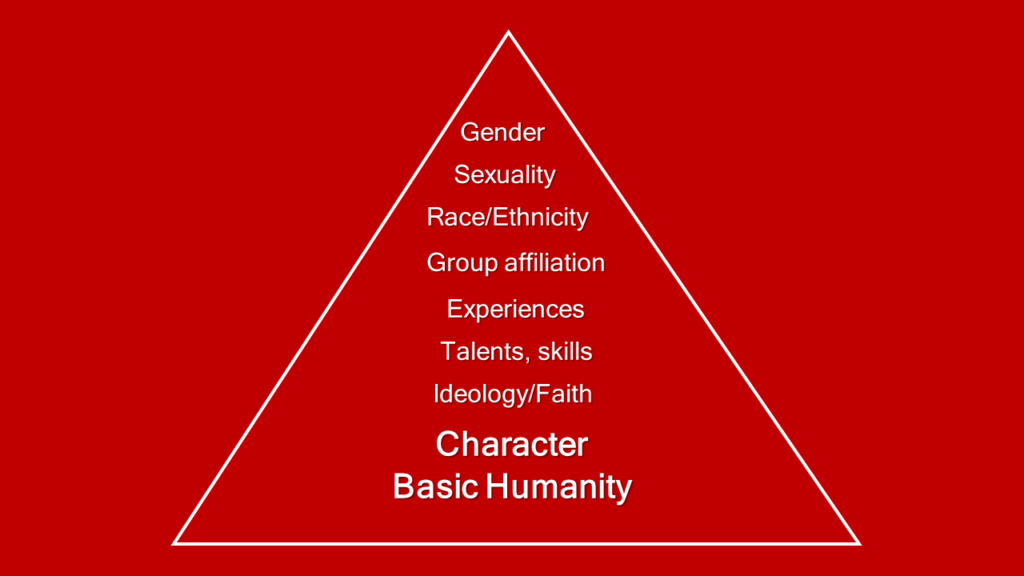Identity
Don’t sell yourself short when it comes to identity.
A narrow range of identity produces anxiety and rigidity. In extreme cases, it fragments the sense of self.
For emotional well-being, identity must be multi-faceted, reflecting your whole person, not one or two aspects of who you are. And it must be hierarchical, with your most important qualities holding priority over lesser important ones.
For example, I identify with certain professional skills, but they are not as important as being a supportive and protective partner and parent.
Maintaining the hierarchy of what we identify with creates a sense of authenticity, indifferent to the approval of others and invulnerable to their disapproval.
Exercise
Write down a description of who you are and what you identify with. (Keep it honest by not showing it to anyone.) It makes sense to start with the hard-wired drive to form and maintain emotional bonds. Example:
I am a partner, parent, friend. I identify with my sense of basic humanity (compassion, kindness, appreciation, morality, equality, fairness) curiosity, skills, community-membership, certain attributes, preferences, skills, and experiences.…
After you make your hierarchical identity statement, read it aloud into your phone and play it back.
Read it several times a day for about six weeks. By the end of that time, you should experience more confidence with less anxiety and preoccupation with what others think of you. You’ll probably spend less time reading comments on social media.
To develop a resilient identity, you don’t need to take anything away from your narrow identity, if it has a solid foundation.
The Foundation
Basic humanity is a sense of connection with all humans. It increases respect, appreciation, compassion, and kindness.
When in touch with basic humanity, we automatically like ourselves more and treat others humanely.
Character consists of mental and moral qualities, for example, honesty, flexibility, humility, resilience, generosity, accountability.
Identifying with any of the upper rungs of the pyramid, at the expense of the foundation, causes prolonged stress or dysphoria.
Most of the ideological and cultural strife in the world (not to mention evil) stems from hyperfocus on any of the upper rungs, while violating the foundation.
Whenever you feel anxious, depressed, or resentful, invoke your basic humanity, your capacity for compassion, kindness, and appreciation. You will automatically become more tolerant and respectful of others.
Most important, you’ll enjoy an enhanced sense of self, invulnerable to harsh self-judgments and any disrespectful regard by others.
